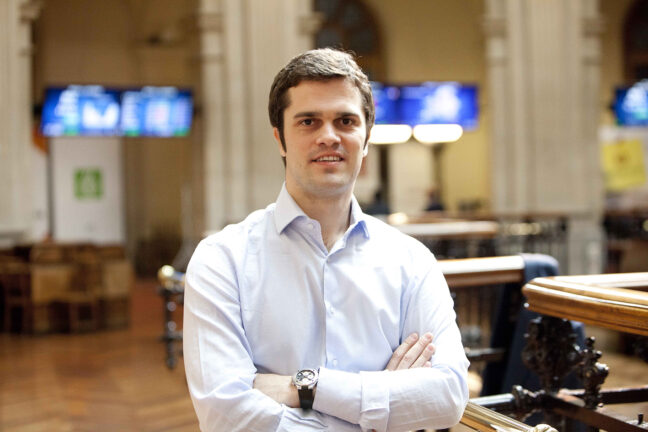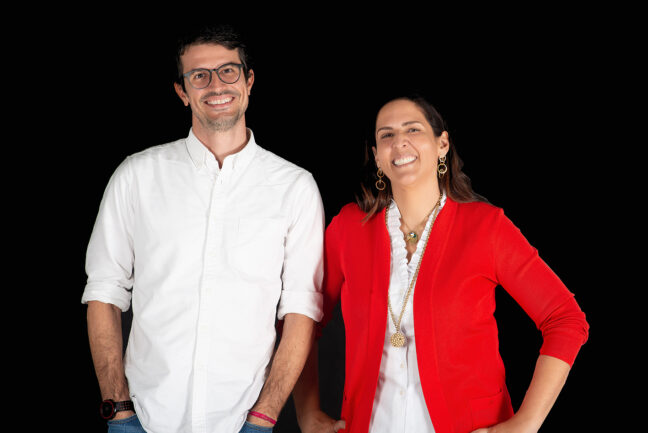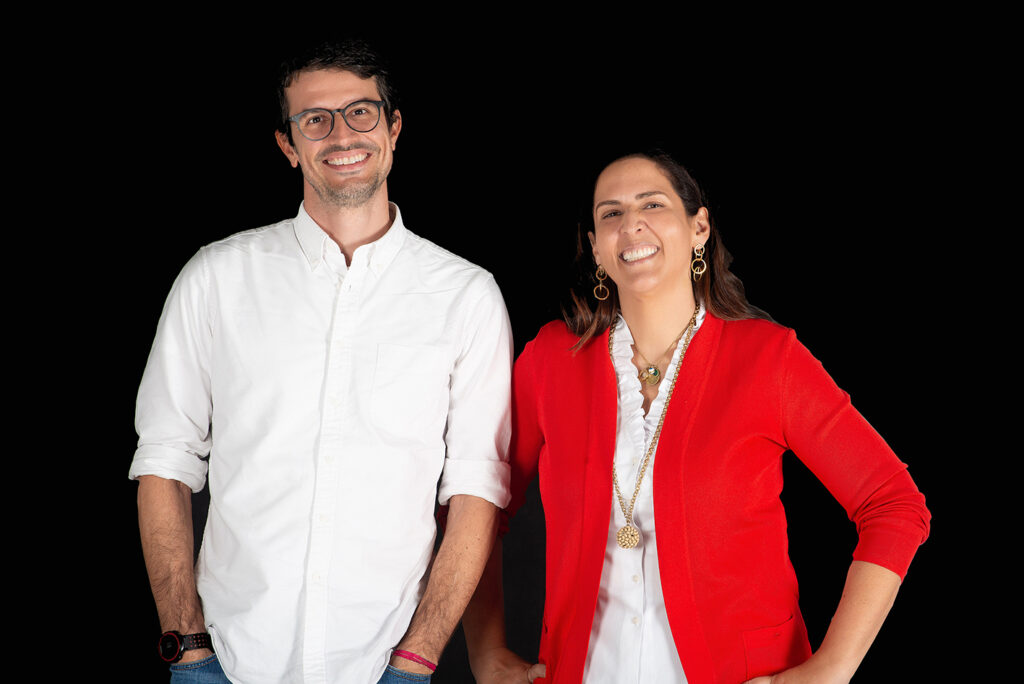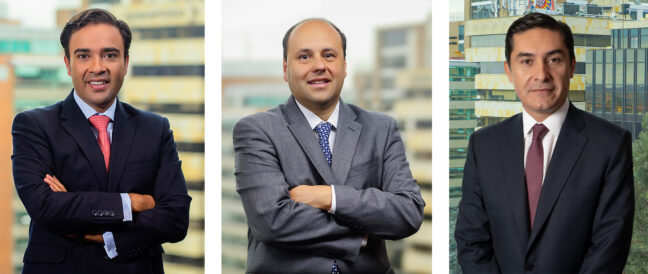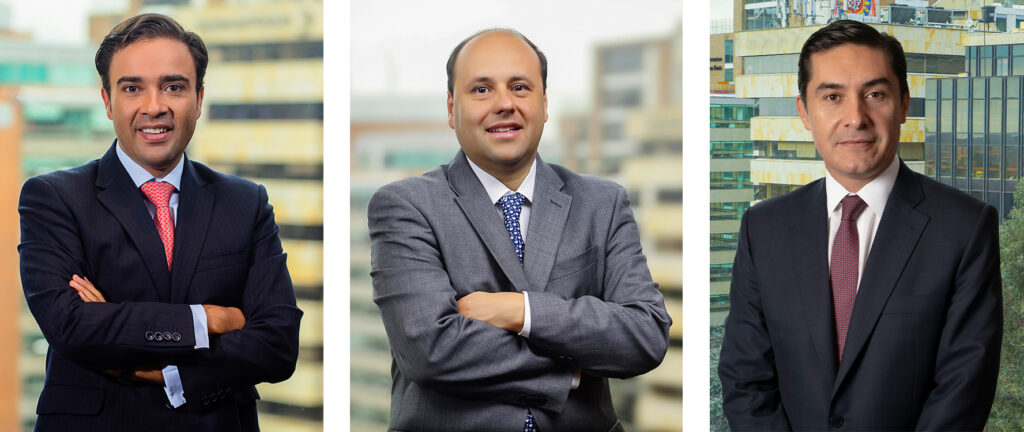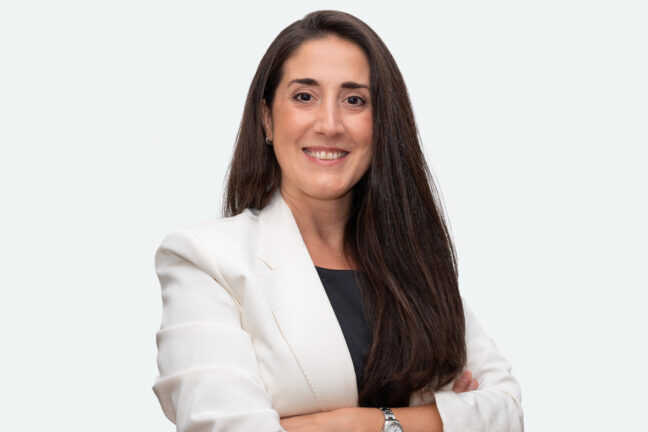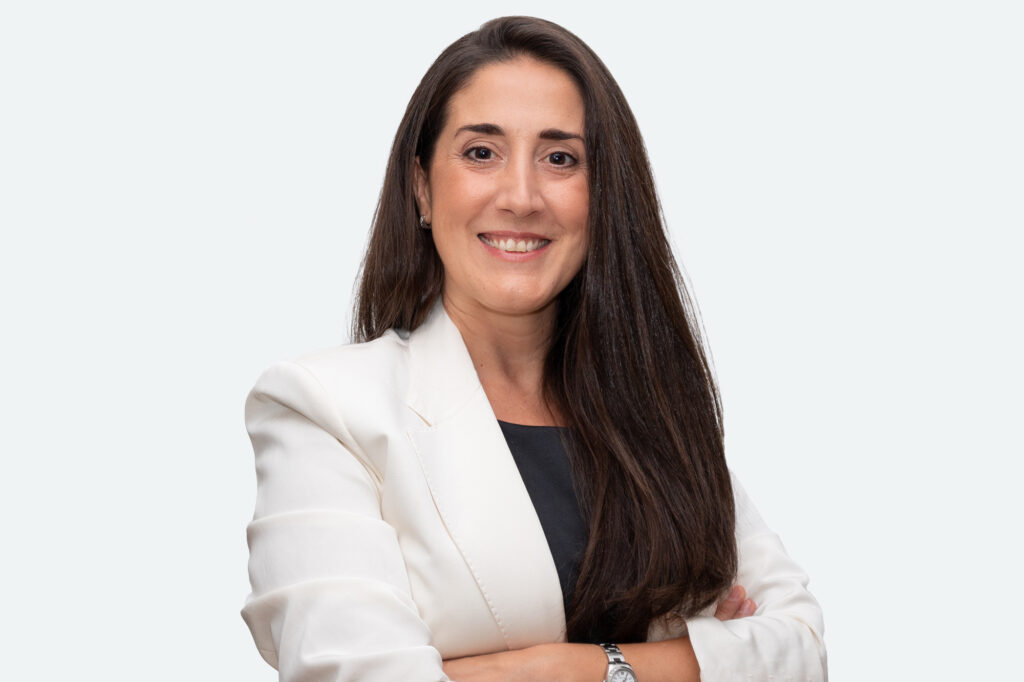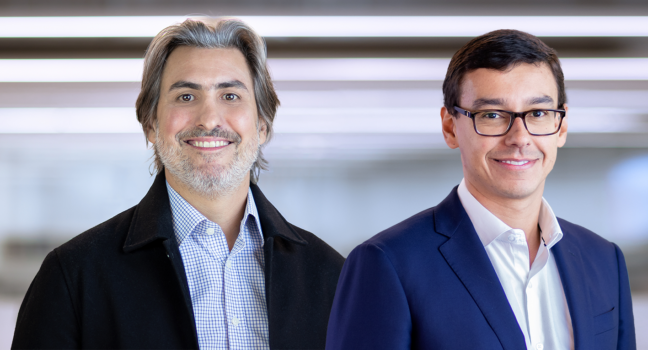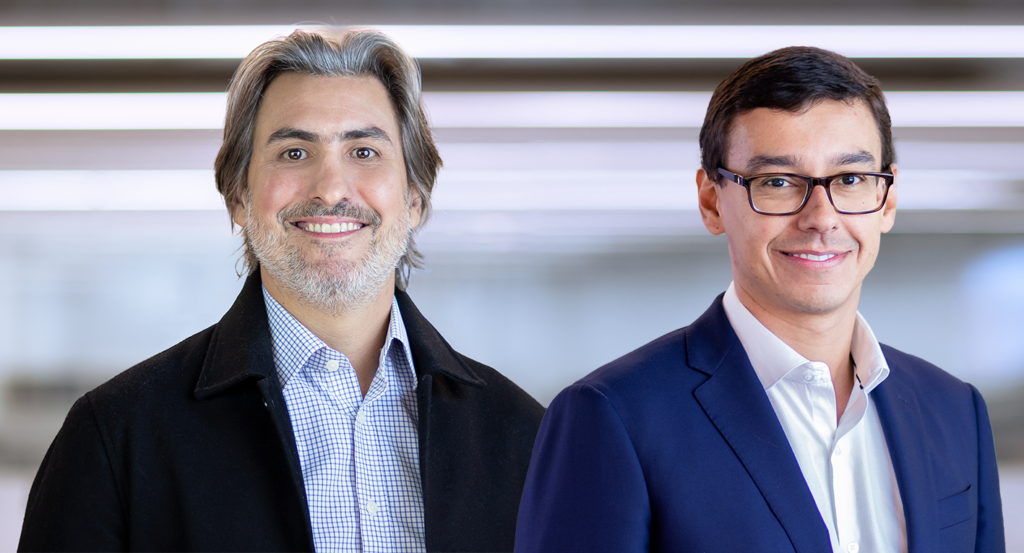Content available in English and Spanish (scroll down)
TTR Dealmaker Q&A with Udekta Capital Founding Partner Juan Sainz de los Terreros
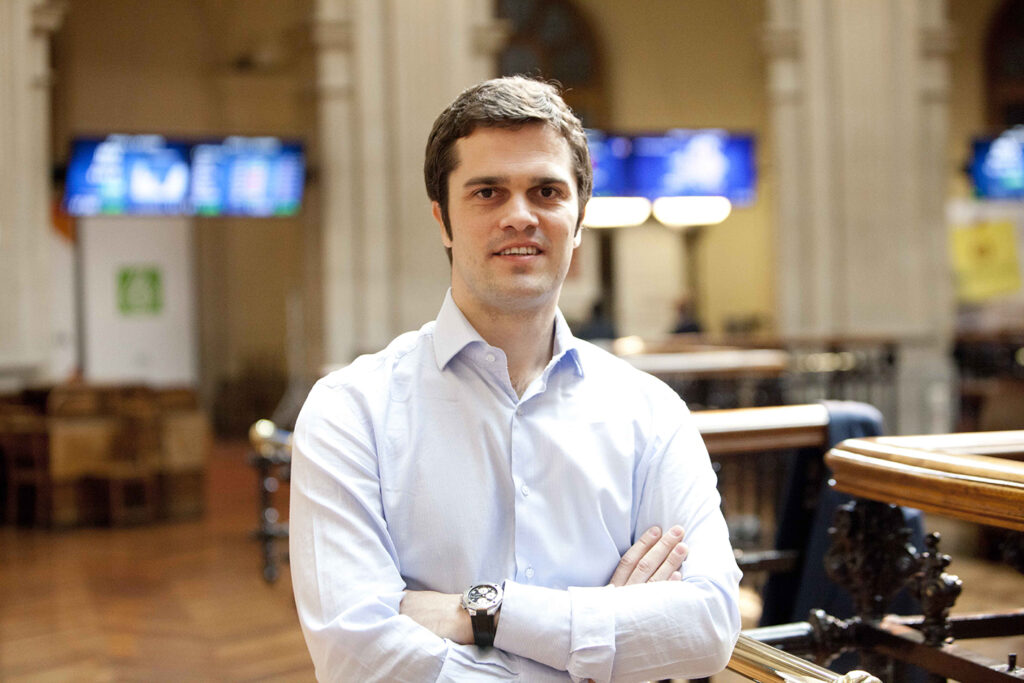
Founding partner and director of Udekta Capital, an independent investment vehicle focused on European microcaps. He is also a founding partner and director of Udekta Corporate, a financial boutique specialised in alternative stock markets and dedicated to advising companies.
TTR: How is investment in small-cap companies (microcaps) evolving in Spain in recent years?
Investment in small-cap companies in Spain is growing, although at a very slow pace. The evolution is positive but it is still an asset class that hardly exists in investors’ portfolios. The number of Spanish investment funds specialising in microcaps is minimal. In spite of this, we believe that investment in small companies capitalised on the stock exchange will develop the most over the next few years. Moreover, the existence of a stock exchange for small companies in Spain is very recent. Until 2009, the year in which a company was listed on what is colloquially known as the SME stock exchange, the BME Growth, there was no financial culture and hardly any professionals dedicated to this asset class.
At UDEKTA, we understand that investing in microcaps is very similar to investing in venture capital or private equity. Investing in microcaps is very similar to investing in unlisted SMEs if we focus on what is really important in an investment. You have to go for the long term, study the companies very well and be aware that mistakes are paid for with even the total loss of the investment. On the other hand, successes can generate spectacular returns. At the end of the day, the balance of your portfolio in the long term will be very satisfactory if you have made the right choice of companies.
TTR: There are barely 50 companies listed on BME Growth, excluding SOCIMIS (REITS). Why do you think the number of companies listed on this alternative stock market is not higher?
I think that the lack of financial culture regarding this type of securities has not helped to see a much more developed SME stock market in Spain. If there is one thing we have in Spain, it is SMEs. And a I believe that the lack of financial culture regarding this type of securities has not helped Spain to see a much more developed SME stock market. If there is one thing we have in Spain, it is SMEs. And a high percentage of them are very good companies with great projects. Moreover, the vast majority of SMEs need financing and are looking for ambitious projects for the future. What better way to raise the profile of your project, attract investors and open up more avenues of financing than listing your company?
We believe that the future of the SME stock market is promising both in Spain and in Europe. More and more information is becoming available on the benefits of listing an SME on the stock market. There is also a growing understanding of the opportunities for investors to include these types of companies on their radar. It is very important that information is also aimed at showing the risks involved in investing in microcaps and the obligations that companies should have if they want to take the leap and list on a stock market such as BME Growth.
TTR: Why is it good for an SME to be listed on the stock exchange?
A listing is a seal of identity that often translates into a seal of quality. In general terms, being listed gives comfort to your customers, suppliers, investors and shareholders. Being regulated certainly helps you grow, especially if you have international goals. A listed company has more avenues of finance available to use when you need them. In terms of inorganic growth, listed SMEs have more tools at their disposal to acquire companies than “private” (unlisted) companies.
In short, being listed helps to gain visibility, financing, generates a valuation of the company and also offers much greater liquidity to your shareholders than is available to unlisted companies.
TTR: What should an SME consider when deciding to take the leap to the stock market or to an alternative stock market?
Having a growth project is very important. But it is even more important to have a reliable, prepared, transparent and honest management team. Communication with the market, investors and shareholders must also be a task that is taken very seriously. It is not a question of communicating too much or too little. The important thing is to know how to communicate and to be available to the real and logical needs of investors who are interested in the company. Your shareholders must also have sufficient, adequate and easily accessible information to know what the real situation of the company is at all times.
If you want to make the leap to the stock market, you must, at the end of the day, professionalise your company. Many of the things you could do without being a ‘public’ (listed) company are no longer valid. The rewards of such professionalisation can be spectacular. Just look at three examples that have already made the leap from BME Growth to the Continuous Market, going from being small companies that were not listed on the stock exchange to being listed companies and then becoming benchmarks in their sector: MASMOVIL, ATRYS and GRENERGY.
TTR: What are the advantages of investing in microcaps?
The revaluation potential is usually much higher than that of large companies. We all understand that a company can grow from a turnover of 5 million to 50 million in a few years. On the other hand, if its turnover is 5,000 million, it is somewhat more complicated to grow to 50,000 million. The same is true for profits. Small companies can grow, and grow a lot, in a very short time and also remain small-cap companies.
TTR: What are the risks involved in investing in small-cap companies?
Investing in small companies on the stock market obviously has its risks. The competition may be financially stronger and may drive a company out of the market or out of its sector just because of financial strength. The liquidity of your investments is also reduced and, therefore, if you want to sell at a certain moment, you may find yourself without liquidity. Volatility is sometimes very high and we must be aware of this. Finally, another of the risks we can highlight when investing in microcaps is that the mortality ratio of this type of company is higher than that of larger companies.
TTR: There are not many funds specialising in microcaps. Do you think the number of microcap funds will increase in the coming years?
Yes, there clearly will. The opportunities that these companies offer fund managers are very important. Moreover, it is an asset class that hardly exists in the market. You hardly see microcaps in the portfolios of both retail and institutional investors. So to see funds specialised in this type of companies is very difficult to see nowadays.
But situations are changing and investors are beginning to better understand microcap investing and its potential. We should also note that the number of small-cap companies must increase if we want to see more funds specialising in them. Today, the universe in which to choose microcaps in Spain is very limited.
TTR: What should an investor look for when investing in a microcap?
We believe that the management team is key. We really invest in people who have attractive business projects. From there, you have to analyse the capital structure of the company very well. You have to understand the business. You have to look at how the company has grown in the past and what they expect to do in the future. If a company has a reasonable or even low level of debt, we believe that this is key to the success of a company. The shareholding structure of the company is also relevant. Whether it has good travelling companions or not.
In the end, when deciding to invest in a company, the analysis should always be broad, deep and continuous.
TTR: What sectors are likely to stand out in the microcap investment segment?
We think you can find great investment opportunities in any sector. Even in those that may seem to be in decline, you can find very interesting companies that offer excellent investment opportunities. Even so, we believe that technology companies, those using new technologies (AI), software companies, sports companies, companies in the lithium sector and the ICT sector will be the main players.
TTR: How has Udekta Capital evolved since its creation?
UDEKTA CAPITAL is a vehicle that invests primarily in microcaps. Our first five years (2017 – 2021) have been very positive, with a gross return of 19.6% (annualised) and a net return of 14% (annualised). Up to September 2022 we have suffered a fall of around 17%. But our target for the next five years is to match or exceed the return already achieved in the first five years +14% net (annualised).
Spanish version
Socio fundador y consejero de Udekta Capital, vehículo de inversión independiente con el foco puesto en las microcaps europeas. Además, es socio fundador y consejero de Udekta Corporate, boutique financiera especializada en mercados alternativos bursátiles y dedicada al asesoramiento a empresas.
TTR: ¿Cómo está evolucionando la inversión en empresas de reducida capitalización (microcaps) en los últimos años en España?
La inversión en empresas de reducida capitalización en España está creciendo, aunque lo hace a un ritmo muy lento. La evolución es positiva pero todavía sigue siendo una clase de activo que apenas existe en las carteras de los inversores. El número de fondos de inversión españoles especializados en microcaps es mínimo. A pesar de ello, pensamos que la inversión en pequeñas compañías capitalizadas en Bolsa, es la que más se va a desarrollar durante los próximos años. Además, la existencia de una Bolsa para pequeñas compañías en España es muy reciente. Hasta el 2009, año en el que empieza a cotizar una empresa en la denominada coloquialmente como la Bolsa de las Pymes, el BME Growth, no existía ni cultura financiera ni existían apenas profesionales dedicados a esta clase de activo.
La inversión en microcaps entendemos desde UDEKTA que es una inversión muy similar a la inversión en capital riesgo o capital privado. Invertir en microcaps es muy parecido a invertir en pymes no cotizadas si nos centramos en lo realmente importante de una inversión. Debes ir a largo plazo, estudiar muy bien a las empresas y ser conscientes que los errores se pagan con incluso la pérdida total de la inversión. Por el otro lado, los aciertos podrán generarte rentabilidades espectaculares. Al fin y al cabo, el balance de tu cartera a largo plazo será muy satisfactorio si la selección de empresas ha sido la correcta.
TTR: Apenas existen 50 compañías cotizando en el BME Growth, excluyendo las SOCIMIS (REITS). ¿Por qué crees que el número de empresas cotizadas en este mercado alternativo bursátil no es superior?
Creo que la poca cultura financiera sobre este tipo de valores no ha ayudado a ver en España una Bolsa de Pymes mucho más desarrollada. Si hay algo que tenemos en nuestro país son pymes. Y un porcentaje elevado son empresas muy buenas y con grandes proyectos. Además, la inmensa mayoría de pymes necesitan financiación y buscan proyectos ambiciosos de futuro. ¿Qué mejor que poner a cotizar tu compañía para dar visibilidad a tu proyecto, para atraer a inversores y para conseguir abrir más vías de financiación?
Nosotros pensamos que el futuro de la Bolsa de las Pymes es prometedor tanto en España como en Europa. Cada vez existe más información sobre las bondades de incorporar a cotizar una pyme a la Bolsa. También se empieza a entender muy bien las oportunidades que le ofrecen a los inversores incluir en su radar a este tipo de compañías. Es muy importante que la información se dirija también a mostrar los riesgos que supone invertir microcaps y las obligaciones que deben tener las empresas que quieran dar el salto y cotizar en un mercado de valores como podría ser el BME Growth.
TTR: ¿Por qué es bueno para una pyme cotizar en Bolsa?
Cotizar es un sello de identidad que se traduce en muchas ocasiones como sello de calidad. En términos generales, cotizar en Bolsa da confort a tus clientes, proveedores, inversores y accionistas. Estar regulado sin duda que ayuda a crecer sobre todo si tienes metas puestas a nivel internacional. Una empresa cotizada tiene más vías de financiación disponibles que podrá utilizar cuando las necesite. A nivel de crecimiento inorgánico, las pymes cotizadas en Bolsa disponen de más herramientas para poder adquirir compañías que las empresas “privadas” (no cotizadas en Bolsa).
En definitiva, cotizar ayuda a ganar visibilidad, financiación, genera una valoración de la compañía y además ofrece una liquidez a tus accionistas muy superior sobre la que disponen las empresas que no cotizan.
TTR: ¿Qué debe plantearse una pyme a la hora de decidir dar el salto a la Bolsa o a un mercado alternativo bursátil?
Tener un proyecto de crecimiento es muy importante. Pero aún más será disponer de un equipo directivo fiable, preparado, transparente y honesto. La comunicación con el mercado, inversores y accionistas debe también ser una tarea que se tome muy serio. No es cuestión de comunicar mucho o poco. Lo importante es saber comunicar y estar a disposición de las necesidades reales y lógicas de los inversores que se interesan por la empresa. Tus accionistas además deben tener la suficiente información, adecuada y de fácil acceso para conocer cuál es la situación real de la compañía en cada momento.
Si quieres dar el salto a la Bolsa, al fin y al cabo, debes, sí o sí, profesionalizar la empresa. Ya no valen muchas cosas de las que podías hacer sin ser una empresa ‘pública’ (cotizada en Bolsa). La recompensa a dicha profesionalización puede ser espectacular. Sólo hay que ver tres ejemplos que incluso ya dieron el salto del BME Growth al Mercado Continuo pasando de ser pequeñas compañías que no cotizaban en Bolsa, a ser empresas cotizadas y luego convertirse en referentes de su sector: MASMOVIL, ATRYS y GRENERGY.
TTR: ¿Qué ventajas tiene invertir en microcaps?
El potencial de revalorización suele ser muy superior al que tienen grandes compañías. Todos entendemos que una empresa podrá crecer y pasar de factura 5 millones a 50 millones en pocos años. En cambio, si su facturación es de 5.000 millones, pasar a facturar 50.000 millones se antoja algo más complicado. Lo mismo ocurre con los beneficios. Las pequeñas empresas pueden crecer, y mucho, en muy poco tiempo y además seguir siendo empresas de reducida capitalización.
TTR: ¿Cuáles son los riesgos que se deben asumir a la hora de invertir en empresas de reducida capitalización?
Evidentemente invertir en pequeñas compañías en Bolsa tiene sus riesgos. La competencia puede ser más fuerte financieramente hablando y pueden expulsar a una compañía del mercado o de su sector sólo por una cuestión de fortaleza económica. La liquidez de tus inversiones es también reducida y, por tanto, si quieres vender en un determinado momento, puedes encontrarte sin liquidez. La volatilidad es en ocasiones muy elevada y debemos ser consciente de ello. Por último, otro de los riesgos que podemos destacar a la hora de invertir en microcaps es que la ratio de mortalidad de este tipo de empresas es mayor que el que tienen compañías más grandes.
TTR: No existen muchos fondos especializados en microcaps. ¿Crees que en los próximos años se elevará el número de firmas en este sector?
Claramente sí. Las oportunidades que ofrecen estas empresas para los gestores de fondos son muy importantes. Además, es una clase de activo que apenas existe en el mercado. Apenas ves microcaps en las carteras de los inversores, tanto minoristas como institucionales. Por lo que ver fondos especializados en este tipo de compañías es muy difícil de ver hoy en día.
Pero las situaciones cambian y los inversores empiezan a entender mejor la inversión en microcaps y su potencial. Debemos señalar también que el número de empresas de pequeña capitalización debe incrementarse si queremos ver más fondos especializados en ellas. Hoy, el universo donde poder elegir microcaps en España, es muy reducido.
TTR: ¿En qué debe fijarse un inversor a la hora de invertir en una microcap?
Entendemos que es clave el equipo gestor. Realmente invertimos en personas que tienen proyectos empresariales atractivos. A partir de ahí, se debe analizar muy bien la estructura de capital de la empresa. Se debe entender bien el negocio. Hay que analizar el crecimiento de la compañía en el pasado y qué esperan hacer en el futuro. Que una empresa tenga un nivel de endeudamiento razonable o incluso bajo, entendemos que es clave para el éxito de una compañía. También es relevante la estructura accionarial que tiene dicha empresa. Si cuenta con buenos compañeros de viaje o no.
Al final, cuando se decide invertir en una compañía, el análisis debe ser siempre amplio, profundo y continuo.
TTR: ¿Qué sectores pueden despuntar en el segmento de inversión focalizado en microcaps?
Nosotros pensamos que se pueden encontrar grandísimas oportunidades de inversión en cualquier sector. Incluso en aquellos que pueda parecer que están en declive se puede encontrar empresas muy interesantes que ofrezcan excelentes oportunidades de inversión. Aun así, entendemos que serán protagonistas las empresas tecnológicas, las que utilicen nuevas tecnologías (IA), compañías de software, empresas deportivas, empresas del sector del litio y del sector TIC.
TTR: ¿Cuál está siendo la evolución de Udekta Capital desde su creación?
UDEKTA CAPITAL es un vehículo que invierte fundamentalmente en microcaps. Nuestros cinco primeros años (2017 – 2021) han sido muy positivos, con una rentabilidad bruta del 19,6% (anualizada) y una rentabilidad neta del 14% (anualizada). Hasta septiembre de 2022 hemos sufrido una caída del entorno al 17%. Pero nuestro objetivo para los próximos cinco años es el de igualar o superar la rentabilidad ya obtenida en los cinco primeros +14% neto (anualizado).
